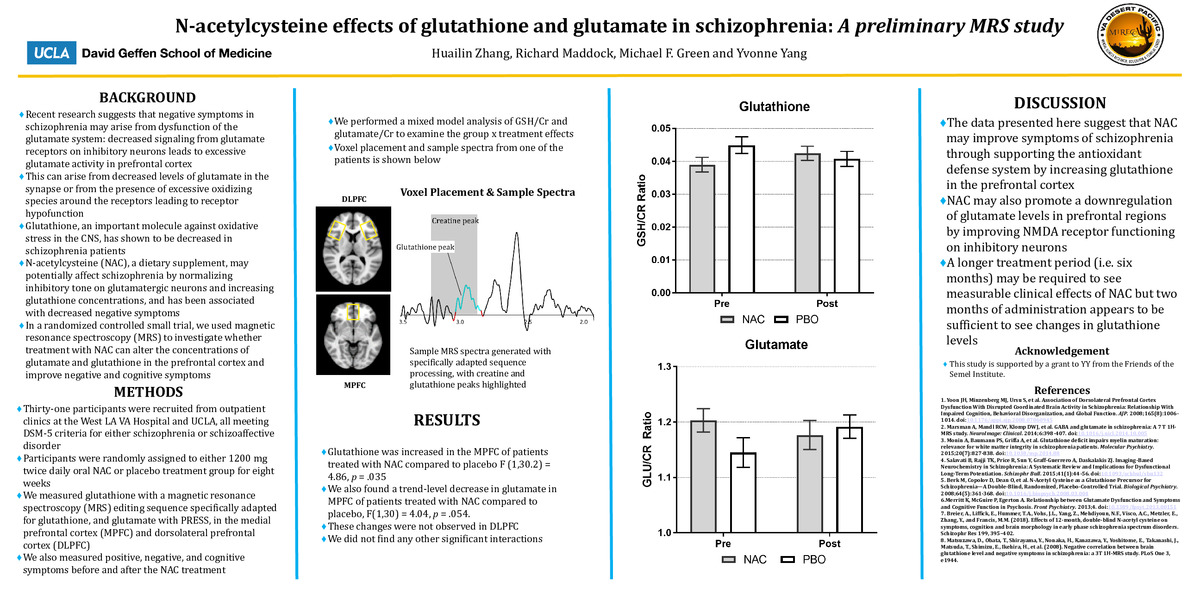-
Author
Huailin Zhang -
Co-author
Yvonne S. Yang, MD. PhD. ;Richard J. Maddock, MD.; Michael F. Green, PhD
-
Title
N-acetylcysteine effects of glutathione and glutamate in schizophrenia: a preliminary MRS study
-
Abstract
Background: Schizophrenia is a severe mental illness associated with positive, negative, and cognitive symptoms. One prominent theory proposes dysfunctional glutamate signaling may underlie cognitive and negative symptoms, specifically that hypoactivity of glutamate receptors on inhibitory neurons in the prefrontal glutamatergic pathway leads to excessive glutamate activity in the prefrontal cortex. This may be further exacerbated by excessive oxidative stress surrounding glutamate receptors due to lower levels of glutathione. A precursor of glutathione, the dietary supplement N-acetylcysteine (NAC), has been shown to improve negative symptoms in patients with schizophrenia. This randomized, double-blind, placebo-controlled study aims to investigate effects of NAC on levels of glutathione and glutamate in the prefrontal cortex via Magnetic Resonance Spectroscopy (MRS). Methods: Forty patients with stable chronic schizophrenia were recruited and randomized to either placebo or NAC (1200 mg BID) administration over an 8-week period. We measured their glutathione and glutamate levels in left dorsolateral prefrontal brain region (DLPFC) and medial prefrontal brain region (MPFC) at initial visit as well as endpoint using MRS sequences specifically adapted for glutathione and glutamate. Additionally, we measured positive and negative symptoms with the Positive and Negative Symptom Scale (PANSS), and cognitive symptoms with the MATRICS Consensus Cognitive Battery (MCCB) before and after NAC treatment. Results: Thirty-four patients completed the trial and 30 patients yielded valid data. We found a significant treatment effect for increased GSH levels and a trend-level treatment effect for reduced glutamate levels in MPFC. No other interactions were significant or at trend level including GSH or glutamate in DLPFC. Discussion: Our data suggest that NAC may improve symptoms of schizophrenia via supporting the antioxidant defense system by increasing glutathione. NAC may also promote downregulation of glutamate levels in prefrontal regions by improving NMDA receptor functioning on inhibitory neurons. A longer treatment period may be required to see measurable clinical effects of NAC but two months of administration appears to be sufficient to see changes in glutathione levels.
-
College
AAC
-
Zoom
-
PDF

